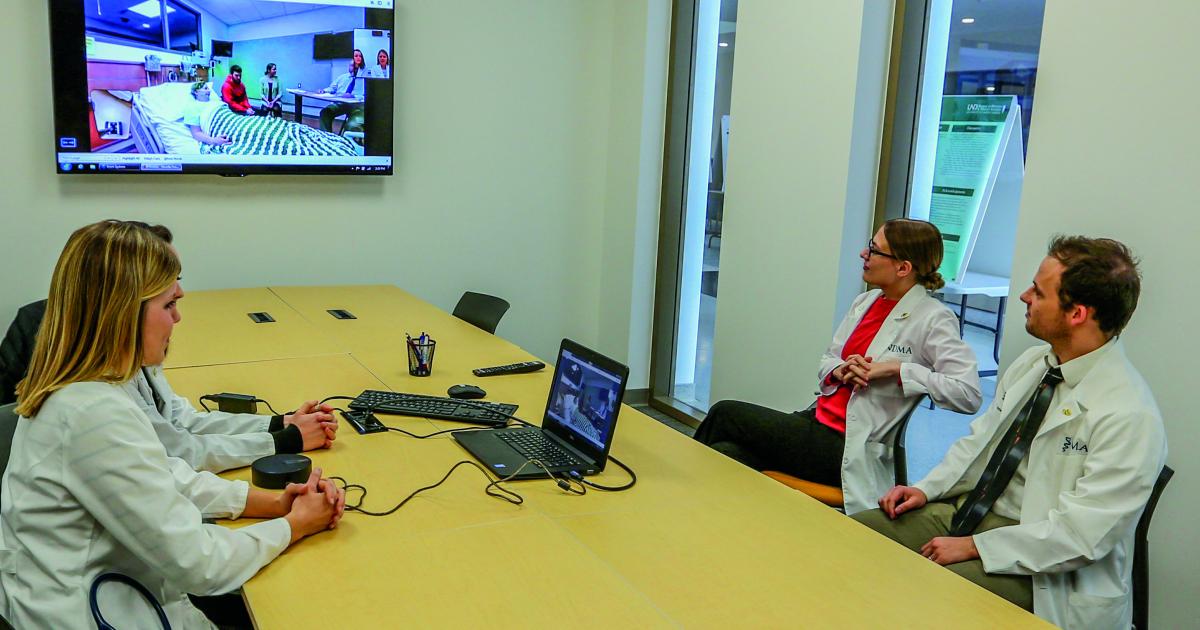The conversation went something like this:
Mom (my daughter, Rachael): “Axel, you need to put your iPad away and come eat.”
Axel (age 9): “But, I’m not done with my game.”
Mom: “Five more minutes.” Five minutes later: “Axel, time to eat.”
Axel: “But, my game isn’t over!”
Read those above four lines three more times. Finally, I chimed in, “What does it take for your game to be over?”
Axel (staring at and clicking on the screen): “It doesn’t get over.”
Me: “What? It never ends?”
Axel: “No. Not unless I die.”
No wonder these kids are hooked. Who wants to die?
I’m worried about the constant stimulation not only our kids’ minds crave, but also ours. If you remember anything about high school science, you remember Pavlov’s dog experiment. Pavlov rang a bell every time he gave a dog a treat. In a short time, just the sound of the bell was enough to make the dog start salivating.
And, so it is with our brains. In video games, it’s the constant need to attend to the action on the screen – keep moving, stay on the lookout, there’s something new popping up around every corner and you need to be ready to defend yourself. If you don’t, you will die.
On social media, the impetus isn’t quite as imperative, but it’s compelling in its own way. There’s always another picture, another post from a friend (or a stranger) to “like” or “love.” Then another and another. Oh, wait, just a couple more. I might miss something, or someone, important. Then there are “reels” to watch – a couple dancing, a soldier being greeted at an airport, a marriage proposal by the ocean. I don’t know any of these people, but I’m lured in. Someone called it the “scroll of doom.” We get so busy watching other people do stuff, we miss doing things ourselves.
And, I’ll admit, when I post something, there’s an endorphin rush when I see the “likes” and “loves” and read the comments from my Facebook friends.
The trouble with all this is twofold. One: We are losing the ability to concentrate for long periods of time. I used to be able to sit and read a book for hours, so absorbed in the story I forgot anything around me. Now, after too short of a time, I find myself thinking, “I should check Facebook. I should check my emails.” The enticement of the endorphin hit has me longing for my phone. It’s like Odysseus (in Greek mythology) only being able to resist the Siren’s song by being tied to the ship’s mast.
I’m trying hard to resist reaching for my phone anytime I have a moment of downtime. I’m guessing many (most) of you are the same. You’re waiting in a grocery line, or in a doctor’s office, or even at a stoplight, and rather than start up a conversation, or daydream a bit, you find your hand reaching for your phone. It’s as if we are afraid to be bored for even a moment.
Some of my best childhood memories happened because I was bored. One hot summer afternoon, I decided to dig a hole in the backyard, trying to discover if China really was on the opposite side of the world. I built Barbie houses out of cardboard boxes and wallpaper samples. My cousin and I wrote a play, cast all the neighborhood kids, then held a memorable performance for our parents for 10 cents a ticket. I’d much rather have those memories.
Two: It’s affecting our relationships. After my previous column, “The five-second game,” I had numerous people write to me about being at restaurants and watching entire families around a table, every single one of them on a screen. No conversation. No eye contact. Their devices were more important than the people right beside them.
We all seem to agree it’s a problem. But, what can we do about it? Here are a few ideas.
One woman told me when everyone in her family was on a screen at a café, she broke out singing. That got their attention. Now, all she has to do is clear her throat and the devices get stashed away.
As parents (and grandparents), we can set an example. Make it a rule with your family: no screens during together times, such as meals and movies. Make a rule with yourself: no screens when you are with someone, such as visiting at a café, on a walk together or even going through the checkout line at a store. (I’ve had numerous clerks thank me for not being on my phone and actually talking to them.)
We’ve probably all been with people who pull out a phone in the middle of a conversation and start scrolling. Here’s my remedy for that. Simply stop talking. Inevitably, the person will note the silence, look up and say, “Keep talking, I’m listening.” My reply is, “That’s OK, what you’re doing must be important. I’ll wait until you’re done.” One hundred percent of the time, that phone gets quickly tucked away.
Set certain times for “screen time” and “no screen time.” Let yourself daydream. Let yourself (or your kids) get bored. You might be amazed at what you dream up.
___
Roxanne (Roxy) Henke lives in rural North Dakota, where boredom led to writing her first novel and daydreaming plotted the next seven. You can share your dreams with her at roxannehenke@gmail.com.










